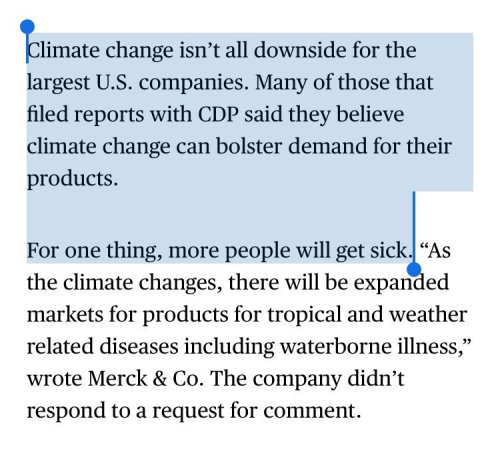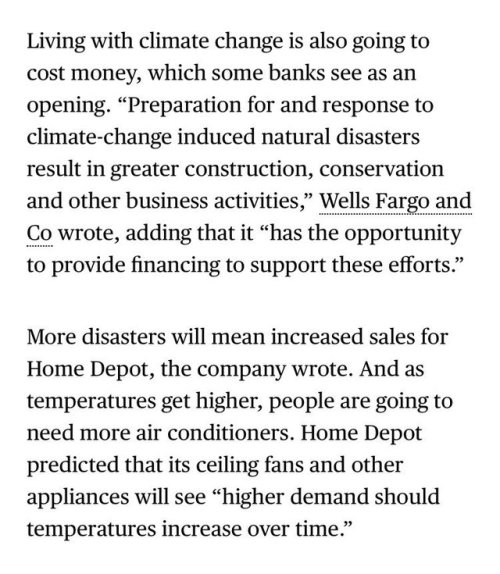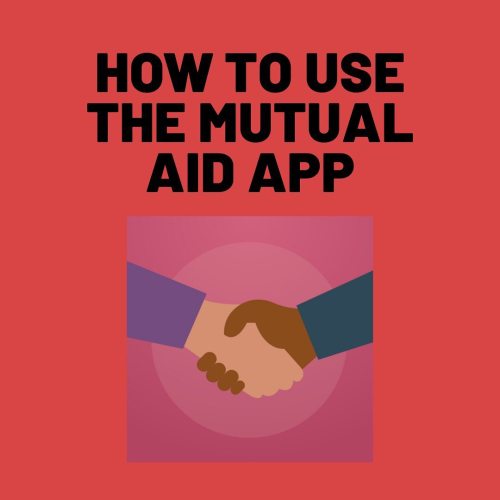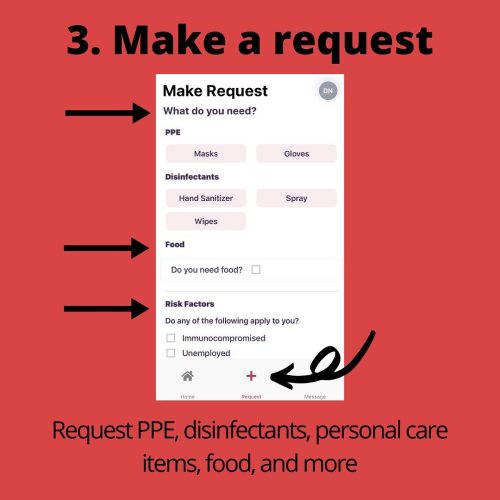I Think Some Of The Phrasing We Use When Discussing Human Environmental Impact Wrt Energy Production
i think some of the phrasing we use when discussing human environmental impact wrt energy production and agriculture and human habitation can influence the way we think about these things
when we discuss certain energy production methods or agricultural methods or architectural methods or any other elements of human habitation of a given area as “disruptive” to the environment, without sufficient context for what that means, it sets up this dichotomy where our habitation is either disruptive to the environment OR has no effect on the environment, and i think for many reasons thats obviously not a healthy or realistic way to frame it
as human beings, we are organisms, we are part of nature, we are PART of our environment, we are not separate from it, we are not above it. human habitation of an environment will have effects on our environment, in much the same way that ANY organism inhabiting an environment will necessarily affect its environment
so framing it as “are we going to be disruptive to the environment in the way we inhabit this space, or are we going to leave the environment be” is, in a way, setting us up for failure from the start. as long as humans live and exist in an environment, we WILL have an impact, so we need to question what kind of impact we want to have, what kind of an impact were willing to have
this isnt to say that things we do that are normally called disruptive to the environment are suddenly all okay, or that everyone calling them bad is engaging in this kind of dichotomy. hydroelectric power is often called disruptive and it IS, it has massive detrimental effects on local ecosystems, monoculture farming is called disruptive and it IS, this is not apologia for these systems
but i think when discussing possible solutions and alternatives, it often gets framed as “well, will this have an environmental impact, cause we dont wanna have an environmental impact” and im sorry but the answer is that any large scale energy production, any large scale food production, any large scale human habitation IS going to have an environmental impact, its not a question of impact or not, its a question of what kind of impact, how will this impact local species, how will this impact climate, how will this impact local weather systems, how will this impact soil, how will this impact erosion, its COMPLICATED
and the impact isnt always negative, we as humans can provide for ourselves and help shape the world we live in in ways that are BENEFICIAL to the world around us
we can live in harmony with nature, but living in harmony with the world doesnt mean isolating ourselves from cause and effect
More Posts from Green-notebooks and Others








People on here should know about the mutual aid app! It’s really growing in the Chicago area (created by some college students from the suburbs), and it’s also being used in ABQ, parts of Colorado, and in the Navajo Nation! Sign up folks in your area and start growing your network!

sustainability as a concept done on an individual basis shouldn’t be framed as planet saving because it’s. not. you can’t save the earth by planting your own tomatoes, because the destruction of the earth is due to corporations
what you CAN do is use individual sustainability to gain a level of independence from capitalism for yourself and for your community through things like sharing grown food
A brief and ugly summary of surviving cold climates
For visitors and writers alike.
You were never meant to be here. Never forget this. You are an ape of the equator, built to run the savannah and swim in tropical waters. Whatever terms and conditions your body has, they are void here. Mother nature never certified to function in a Death World.
Enduring the cold is never a matter of “how much” as much at it is “how long”. Think of it as the water levels of the vieogames you have played. No matter what equipment enables you to remain longer, you can’t stay there indefinitely. The coat that keeps you warm and toasty for three hours in -15 is enough to keep you functional for an hour of -40.
Whatever the locals say, listen to them. Err to the side of caution if you must. You may not endure what they can endure, but you SURE AS FUCKING NOT cannot survive what they say cannot be endured.
That being said, alcohol is a filthy fucking liar and so is anyone who offers it to you. The warmth it gives is an illusion, and a sign of damage. You are worse off feeling comfortable with a mouthful of whiskey as you are freezing your gonads off stone cold sober.
Winter tires. Studded winter tiers are a MATTER OF LIFE AND DEATH when you drive on a frozen road. That being said, whatever the locals tell you that your car will need to run as theirs do, take it. Taking the risk of being pranked is worth survival, and you can always stab their tires in the spring if they were shitting you.
Eat. For the love of god, make sure that you eat. Heavier meals might be unpalatable at first for someone used to lighter nutrition, but maintaining bodily warmth in a cold climate takes up a lot of energy, and you will feel tired and drowsy for a long while shile your metabolism adjusts to producing more heat than Mother Nature ever intended. The skinny people in your party are especially vulnerable, ensure their well-being on a regular basis.
If you have a smartphone/other essential technology on your body, keep them close to your body to keep them warm. They were not designed to be frozen any more than you were.
Sleep is death. SLEEP IS DEATH. Never, ever stop to rest in the cold, if you do not have the means to make a fire/otherwise produce heat. The cold tires you out because keeping warm takes energy, but taking a rest will not return your energy. If you feel the need to sit down and rest because you are tired because of the cold, call for help. This is not a hyperbole, if you feel like you are too tired to go on in a cold climate, CALL A FUCKING AMBULANCE. If you fall asleep in the snow, you will not wake up. Hypothermia can and will literally kill you.
Avoid skin-to-snow-contact if you can. It hurts because you were not supposed to do it. Consider ice to be like acid. Touching is bad for you.
Feel free to add to the list if you feel like I missed something.





I’m trying to write a personal diary about my gardening activities.
Tiny Houses in Urban Context
I’ve seen a lot of really great tiny home designs, and I’ve seen a lot of love from other people for those designs as well. They combine a small space, perfect for one or two people, that usually only apartment buildings design for, with the benefits of having a detached home, with a yard, and windows on all sides for more natural light.
What I don’t see is a whole lot of context, least of all in an urban neighborhood environment. These houses are often pictured in an open grassy, or forested space, which is nice for some people I’m sure, but there are lots of people who would prefer to live in a city, in pedestrian and transit friendly areas, rather than in the middle of nowhere, where you’d have to use a car to get everywhere.
There already exists an urban context for tiny homes, but due to restrictive zoning, it’s not commonplace in most cities in the U.S.
They’re called Bungalow Courts, or sometimes Cottage Courts, and basically it’s where you take two adjacent lots, and rather than having one large single-family-house per lot, you have around 3 or so tiny houses per lot, all facing a shared space in the center.

All this takes up the same space as two city lots, which are usually zoned to only allow one house per lot. But not everyone wants, or can afford a large house, so Bungalow Courts would be a perfect fit in a lot of neighborhoods that currently lack a lot of housing diversity for a range of wants and needs.



Anyway, I just thought I’d share, because I think this a really neat concept that should be allowed more places. I’d think I’d like to live in a Bungalow Court; I like the idea of having a house to myself, but I don’t need much space, and I don’t want a huge yard to maintain.
In order to make this legal to build out, zoning would need to be changed to allow 3-4 units of housing to be built on lots currently restricted to only 1 unit of housing. A big contributing factor to rising housing costs has been the over-favoring of single-family houses on large lots since the end of WWII, so not enough units of housing are being built in many cities to keep up with demand.
Legalizing more “missing middle housing” like Bungalow Courts in single-family-house-neighborhoods would help cities incrementally keep up with demand, in a way that fits nicely into existing neighborhoods.
-
 sakura-in-sahara reblogged this · 3 years ago
sakura-in-sahara reblogged this · 3 years ago -
 moontapestry liked this · 3 years ago
moontapestry liked this · 3 years ago -
 columnatus liked this · 3 years ago
columnatus liked this · 3 years ago -
 miichii-desu liked this · 4 years ago
miichii-desu liked this · 4 years ago -
 testogeldyke reblogged this · 4 years ago
testogeldyke reblogged this · 4 years ago -
 bireaucracy-archived liked this · 4 years ago
bireaucracy-archived liked this · 4 years ago -
 n0identity reblogged this · 4 years ago
n0identity reblogged this · 4 years ago -
 76historylover liked this · 4 years ago
76historylover liked this · 4 years ago -
 mendegelamandarin reblogged this · 4 years ago
mendegelamandarin reblogged this · 4 years ago -
 umbrellas-on-bridges liked this · 4 years ago
umbrellas-on-bridges liked this · 4 years ago -
 sleepygrumpylumpy reblogged this · 4 years ago
sleepygrumpylumpy reblogged this · 4 years ago -
 booboothedude liked this · 4 years ago
booboothedude liked this · 4 years ago -
 an-absurd-epiphany liked this · 4 years ago
an-absurd-epiphany liked this · 4 years ago -
 pensive-expression reblogged this · 4 years ago
pensive-expression reblogged this · 4 years ago -
 jikuai reblogged this · 4 years ago
jikuai reblogged this · 4 years ago -
 jikuai liked this · 4 years ago
jikuai liked this · 4 years ago -
 expiredpineapplecans reblogged this · 4 years ago
expiredpineapplecans reblogged this · 4 years ago -
 sev-wildfang reblogged this · 4 years ago
sev-wildfang reblogged this · 4 years ago -
 brownbearbutch reblogged this · 4 years ago
brownbearbutch reblogged this · 4 years ago -
 gray-warden reblogged this · 4 years ago
gray-warden reblogged this · 4 years ago -
 lt2when liked this · 4 years ago
lt2when liked this · 4 years ago -
 another-tired-anarchist reblogged this · 4 years ago
another-tired-anarchist reblogged this · 4 years ago -
 cyanwyrmie reblogged this · 4 years ago
cyanwyrmie reblogged this · 4 years ago -
 satanscutestdaughter liked this · 4 years ago
satanscutestdaughter liked this · 4 years ago -
 beloved-amber-gem reblogged this · 4 years ago
beloved-amber-gem reblogged this · 4 years ago -
 paragrin liked this · 4 years ago
paragrin liked this · 4 years ago -
 iamthelowercase reblogged this · 4 years ago
iamthelowercase reblogged this · 4 years ago -
 w00dchips reblogged this · 4 years ago
w00dchips reblogged this · 4 years ago -
 redvanillabee reblogged this · 4 years ago
redvanillabee reblogged this · 4 years ago -
 season-one-alana reblogged this · 4 years ago
season-one-alana reblogged this · 4 years ago -
 captain-onyourleft reblogged this · 4 years ago
captain-onyourleft reblogged this · 4 years ago -
 captain-onyourleft liked this · 4 years ago
captain-onyourleft liked this · 4 years ago -
 thedoubteriswise reblogged this · 4 years ago
thedoubteriswise reblogged this · 4 years ago -
 hi-i-may-be-satan reblogged this · 4 years ago
hi-i-may-be-satan reblogged this · 4 years ago -
 hi-i-may-be-satan liked this · 4 years ago
hi-i-may-be-satan liked this · 4 years ago -
 martian-anthropologist liked this · 4 years ago
martian-anthropologist liked this · 4 years ago -
 uttering-joyous-leaves reblogged this · 4 years ago
uttering-joyous-leaves reblogged this · 4 years ago












